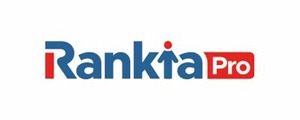Michael Niedzielski is our Fund Manager of the Month. Michael is co-founder and fund manager of ROCE Capital. Previously he worked at T Rowe Price (2015-2020) advising the International Discovery Strategy (5-star Morningstar) on its European investments. Prior to T Rowe Price, Michael was a senior analyst and sector fund manager at Fidelity Management & Research in Boston and London (2007-2015). Michael began his career at JP Morgan in London (2002-2004) within its M&A advisory department.
Michael graduated from Columbia Business School in 2007 with an MBA and the University of Chicago in 2002 with a BA in economics. Michael has dual citizenship from France and Brazil and speaks fluently French, English and Portuguese. He currently lives with his wife and two daughters. In his spare time Michael is a dedicated advocate for pediatric cancer research and sits on the board of the non-profit organization www.solvingkidscancer.org.
When and how did you start your career in the financial industry? Did you have any other vocation?
I have always wanted to work in the financial industry. I started working for JP Morgan in 2002 as an investment banker. I moved to the buy-side in 2007 by joining Fidelity Management & Research in Boston as an European equity analyst and sector fund manager. I left Fidelity in 2015 to join T Rowe Price in London where I was in charge of European small caps.
What’s your biggest challenge as a portfolio manager?
I think the biggest challenge as a portfolio manager is to stay calm and detached from emotions on your stocks. The extreme volatility of the market and amount news flow available to portfolio managers can be highly detrimental to performance if one is not disciplined and collected.
How did you make the decision to found ROCE Capital?
I have always wanted to start my own investment fund. Together with my partner Matthieu Bordeaux-Groult, who used to work on the sell-side at Exane BNP Paribas, we have been discussing this project for almost 10 years now. We did not want rush it. We wanted to acquire sufficient experience and skills to be credible and fully prepared. We are now both in our early 40’s and have lived through 2 major financial crises. We are well-trained and ready to take on this new challenge.
What differences are there as a fund manager from a large international Asset Manager vs a boutique Asset Manager?
The job is basically the same. I have obviously less operational/back office support today than I used to at T Rowe Price or Fidelity but my partners are providing me with the necessary support which allows me to focus almost 100% of my time on analyzing companies and selecting investments. We have been positively surprised by our corporate access which, despite our small size, has been highly satisfactory.
What has been the most extraordinary thing you have seen in markets? How do you see the next steps regarding the second wave of COVID-19?
I am always amazed by extremes, namely how cheap some companies with poor momentum can get and, inversely, how expensive some companies with great momentum can trade at. Tesla for example, whose market cap was multiplied by 5x since the beginning of the COVID crisis and now exceeds $400bn is definitely ‘extraordinary’ in my opinion and a stock that I would not be buying today. I could name many NASDAQ stocks that are trading at valuations
levels that are in my opinion disconnected from fundamentals. On the other hand, we see good value in many European small caps.
As for the second COVID-19 wave we are clearly in the middle of it right now. We are encouraged by the fact that most governments are resisting temptation to impose full lockdowns similar to the ones of last April/May. They are adopting a more sensible approach that does not involve shutting down the economy. Of course we are all hopeful for a vaccine which is the only way to get back to normality. This will probably take another year or two. We are well positioned for it and will be patient.
What key principles drive your investment processes and why?
We are disciplined, fundamental and long-term investors. We try to not to spend too much thinking about the macro and focus on selecting good companies we want to own for the long-run with a research-intensive bottom-up approach. We seek growth but profitable growth which we define as incremental returns above the company’s cost of capital. That is why we decided to name our fund ROCE Capital (ROCE standing for Return on Capital Employed). We also prefer companies run by management teams that are financially aligned with minority shareholders. Not surprisingly we own several family-owned companies.
What is the characteristic of the new fund that you are going to launch?
The fund launched on September 28, 2020 and currently consists of 55 long positions invested primarily (95%) in Europe. We have
Liliana Varona
Investor Relations Manager at RankiaPro


